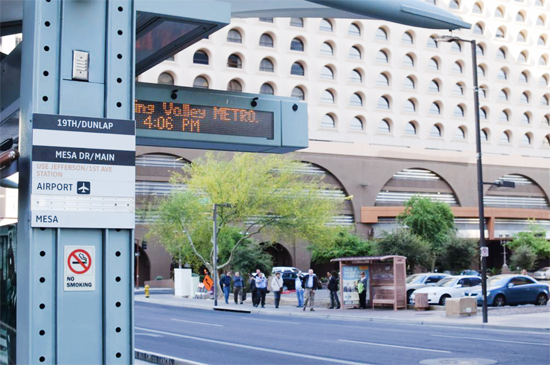It also would pare down environmental regulations and legal reviews
The Trump Administration on Feb. 12 published an outline for updating or replacing aging roads, dams, bridges and other critical infrastructure, but the federal investment falls short of what many would like, say several Arizona notables.
“I’m not sure that 10 percent (federal share) is enough to entice states to do much,” David King, an Arizona State University transportation and land-use professor, told Phoenix Business Journal.

“If you look at $200 billion, it’s really not adequate to what we as a nation need to invest in our infrastructure,” Valley Metro CEO Scott Smith told the newspaper.
But the proposal could provide some needed stimulus for cash-strapped Arizona infrastructure.
A three-year-old report from the American Society of Civil Engineers, which gave Arizona a “C” grade for its infrastructure overall, Arizona’s roads, water pipes, dams and other infrastructure have struggled to keep up with a skyrocketing population.
The plan also sets aside $50 billion for capital investments in rural areas, mining towns and tribal reservations.
It’s estimated it would take $1billion a year just to maintain Arizona roads, the Business Journal reports.
The prioritization of local funding is nothing new for transit leaders.
“The federal share of most Metro Phoenix transit projects is under 50 percent,” Smith said. “We have skin in the game. In our overall program we’re looking at 30-40 percent federal funding,” told the Journal.
Smith said though he welcomes further private investment, he’s unsure where transit fits into Trump’s infrastructure goals, as the president has proposed cuts to the FTA capital investment grants and other programs that are instrumental in transit development.
“And privatization will lead to tolls and fees and such that will better reflect the true cost of building and maintaining infrastructure,” ASU’s King said. “That would be a net benefit for society.”











